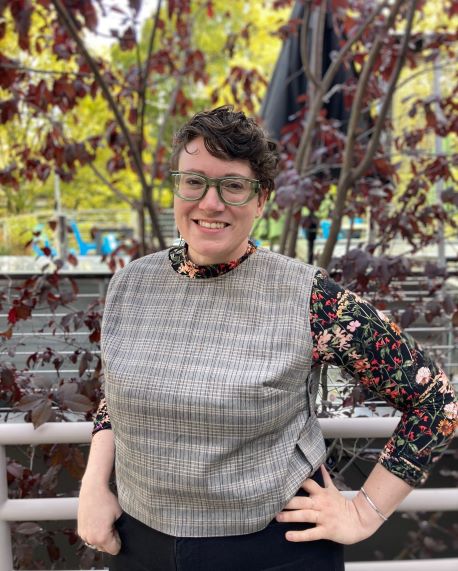My personal philosophy of care for my patients focuses on creating safe spaces for patients to discuss goals and concerns without shame. I strive to partner with my patients so we can work together to get each patient to their healthiest version of themselves.
So Why Be a Nurse Practitioner and Not a Doctor?
Doctors and Nurse Practitioners (NPs) are similar in many ways. We can all prescribe medications, diagnose and identify diseases and injuries, be in charge of a patient’s primary care, order and interpret lab tests and x-rays. So why would I choose to be a Nurse Practitioner instead of an MD? There are some key philosophical differences in the approach to training of nurses that resonate with my own values of empowerment of others and community building.
Doctors are trained to be experts in labeling and treating disease processes, whereas nurses are trained to be experts in a patient’s experience of a disease process. This functionally means that we have advanced training in communicating and educating patients about what is happening with their health, and what to expect with health outcomes in the future. It also means we have the training to implement wider scale projects to improve the health of whole communities, and focus on models of prevention of health crises.
What is your approach to patient care?
Many of the strategies I use in patient care are based on a philosophy called Trauma-Informed Care. For me, this is the radical idea of building our healthcare system based on the needs of those humans who have had the least access to healthcare and the worst experiences with it. What would it be like to go see your provider in a place where all the challenges in your life have been acknowledged as contributing to your ability to get well? What if going to the doctor meant collaborating and making shared decisions, instead of following rules? What would it be like to know you could say no to being weighed at the office, or could decline a pelvic exam, and not be worried that you would leave empty handed? Ultimately, my own experiences as a nurse, and as a member of the LGBTQI+ community have made me committed to the belief that every person has the right to be treated with dignity and respect, and has the right to access healthcare that is specifically tailored to their lived experience of the world. This set of beliefs is something I am lucky to share with all of the Wise Patient staff, and why I’m so excited to be a part of this new practice community.

